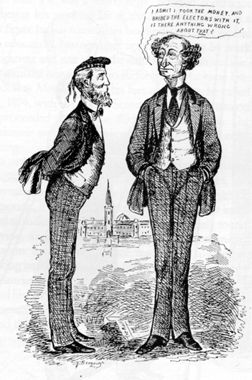Article
Petitioning in Canada
Petitioning is one of the most common tools of political protest accessible to the local population. Limited during the era of New France, the practice of collectively petitioning political authorities became much more frequent in the years following the Conquest by the British. Sanctioned in the 1689 Bill of Rights, petitioning had been a common practice in Britain for centuries, and ever since 1763, Canadians have been sending petitions to their governments (colonial, imperial, federal, provincial, and municipal) for a variety of reasons. With the recent introduction of e-petition, Canadians, more than ever, can have their voices heard in government.







